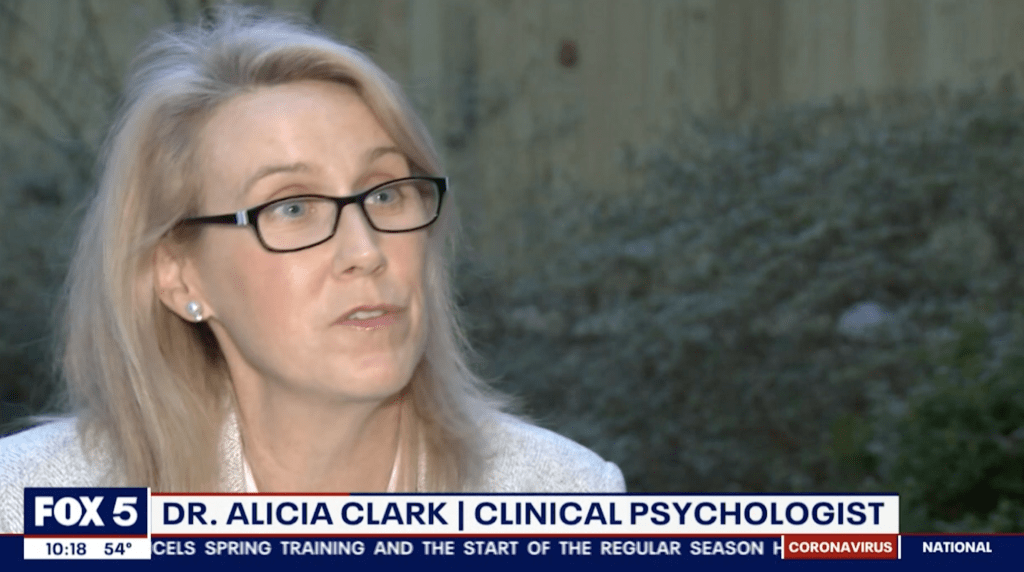Is The Covid-19 Virus Making You Anxious?

Is the Covid-19 virus making you anxious? You bet it is. Most of the folks I’ve talked to this week are feeling it – I even helped with an evening news segment on this very issue. The corona virus isn’t just threatening our health, routines, and retirement accounts, it’s impacting our anxiety too. How could we not feel anxious in a global pandemic, when our wellbeing and that of our loved ones is at stake?
As you brace for contact with this invisible and unpredictable virus, here are a few reminders to keep anxiety working for, rather than, against you.
- Remember, anxiety is normal, and can be a powerful catalyst for problem solving, and mobilizing change. There is nothing wrong with you if the Covid- 19 virus is making you anxious – we all should be. The trick is to let anxiety do its job, and use it to take control of what you can and need to in your life. This is what has us preparing, planning, and hand-washing.
- Stay informed, but not too much. Covid-19 coverage is nonstop, and consuming too much can be anxiety-producing. Pick reputable information sources and limit exposure if you notice yourself feeling worse.
- Maintain self care basics of sleep, exercise, and nutrition. Keeping up your sleep (7.5 hours minimum) and fitness (at least 15 minutes of aerobic exercise) will help your brain best manage the uptick in stress in anxiety, whereas alcohol and caffeine will make this harder. Eating plenty of nutrient dense food (fruits, vegetables, and protein) will also help boost your body’s natural immune system, as well as your mind.
- Maintain contact with friends and loved ones even if it’s at a distance. When the virus makes you anxious, get outside with friends at a distance, and use technology to stay connected. Talking about your feelings and listening to others’ is a powerful way of soothing anxiety, and reminding us we are not alone.
- Limit secondary anxiety – anxiety about your anxiety is the kind of anxiety that can tip you into symptomatic anxiety and irrational fears. Try not to let yourself get freaked out that you are distracted and even frightened. Instead channel those feelings into doing the things you need to do to prepare and keep yourself healthy.
- If anxiety gets overwhelming, use a grounding technique like 5-4-3-2-1 related to your 5 senses. 5 things you see in front of you right now, 4 things you can feel right now (desk top, the chair, etc), 3 things you can hear, 2 things you can smell and 1 thing you can taste. Or take some deep belly breaths to remind your nervous system you’re ok.
- Expect fatigue and to rest. Anxiety and stress can be cognitively draining, and you may find yourself feeling extra tired lately. Downtime and rest will allow your body and mind to recover, so you can be at your best.
Change never happens without some amount of anxiety. Remember we are all in this together doing our best. Be gentle with yourself and the people around you as you pivot into new routines, and absorb change, and aim your expectations at good enough, rather than perfect. When you forget to hand-wash, run out of something you need, and touch your face, invite grace, forgiveness and even humor where you can.
To be sure, the anxiety of this collective moment is fueling the solutions and growth we need to protect ourselves and our communities. There are loads of good, smart, and caring people using their anxiety to solve the myriad problems we are facing, and there will be solutions.
As Fred Rogers famously would advise in a crisis, “look for the helpers….that’s where you’ll find hope”
Find out about harnessing anxiety to maximize wellness: Get the Amazon best-selling book Hack Your Anxiety, sign-up for the free Hack Your Anxiety mini-ecourse, and subscribe to the Hack Your Anxiety newsletter. For more help with Covid-19 and mental health, consult the online resources listed below.
Additional Resources for Covid-19 and Mental Health:
- https://www.apa.org/practice/programs/dmhi/research-information/social-distancing American Psychological Association
- Mental Health and Coping During COVID-19 Centers for Disease Control and Prevention, 2020
- Parent/Caregiver Guide to Helping Families Cope with the Coronavirus Disease 2019 The National Child Traumatic Stress Network, 2020
- Coronavirus Disease (COVID-19) Advice for the Public World Health Organization, 2020
- Taking Care of Your Behavioral Health: Tips for Social Distancing, Quarantine, and Isolation During an Infectious Disease Outbreak Substance Abuse and Mental Health Services Administration, 2014
- The psychological impact of quarantine and how to reduce it: rapid review of the evidence Brooks, S.K., et al., The Lancet, 2020
Hello Dr Clark, could you please share any techniques or blog about dealing with PTSD post a car accident?
Hi Preeti,
Thanks for your request for tips on healing from a traumatic car accident. We don’t talk enough about car accidents, and I would be happy to write something very soon.
All my best,
Alicia